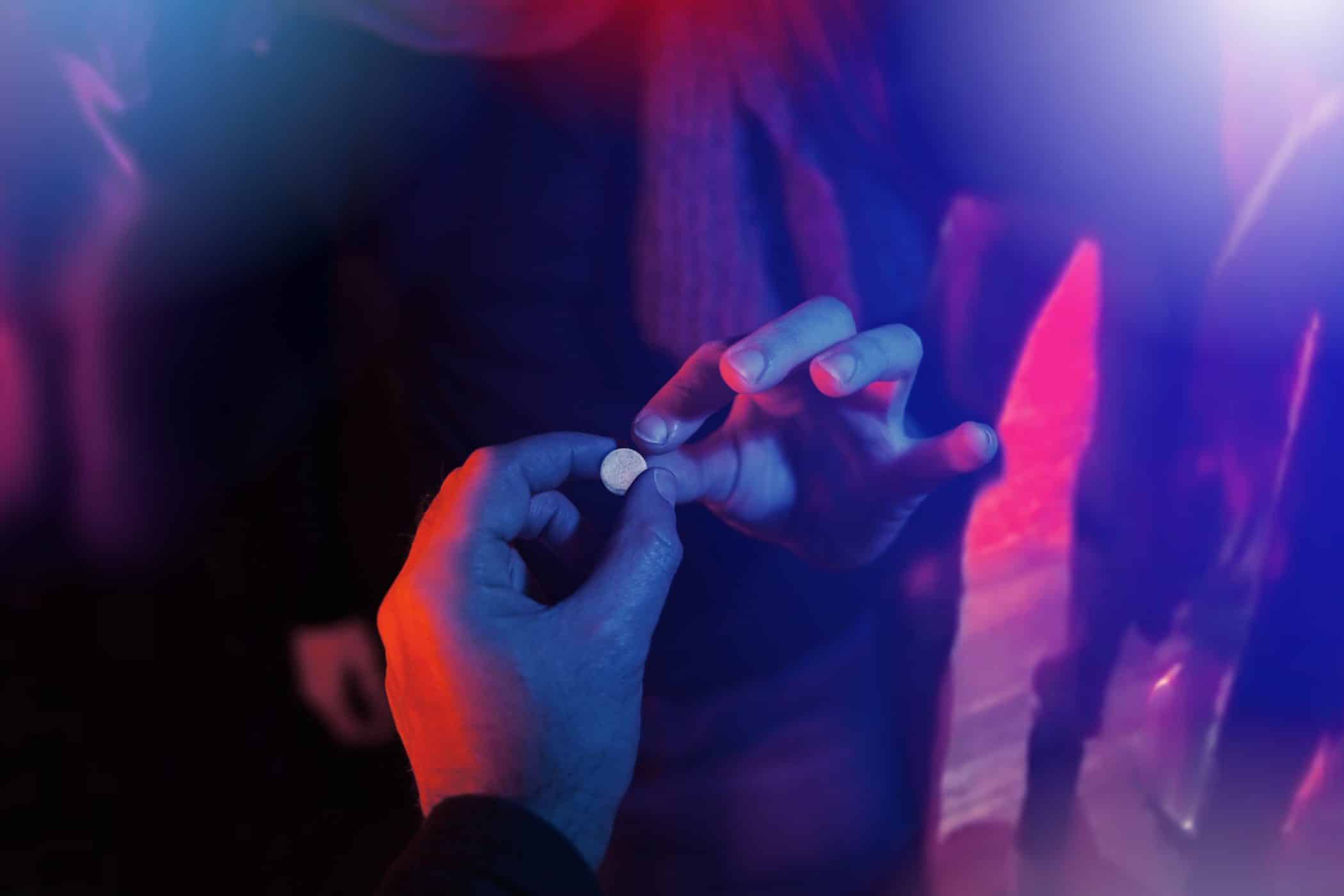Methylenedioxymethamphetamine (MDMA) emerged onto the drug scene in the late 1970s and early 1980s as a “club drug” popular at music festivals, raves, and concerts. Known also as ecstasy (X) or “Molly,” it’s a synthetic drug derived from amphetamine. The effects include decreased anxiety, mental stimulation, and enhanced sensory perception. While it’s known as a party drug, using MDMA can actually be quite risky.
Facts About MDMA
MDMA is considered a hallucinogen and a stimulant. Common side effects include blurred vision, nausea, increased heart rate and rapid breathing, and involuntary teeth clenching. It’s usually a small colored tablet that may have a logo, cartoon character, or other design, but it can also come in powder, liquid, or capsule form and has a bitter taste.
Some studies suggest that not all “ecstasy” tablets never contain any MDMA. Many instead were a mix of fake cocaine (aka “bath salts”) or other chemicals such as cocaine, meth, LSD, or ketamine. This makes MDMA pills especially dangerous since users often don’t know what they’re taking.
Effects of MDMA on the Brain
Because the ingredients of any given MDMA pill are unknown until tested, the drug can interact with any other substance the user is taking, including alcohol, stimulants, or depressants. The interaction can have any number of harmful effects on the brain, heart, and other organs in the body.
Some effects of MDMA include:
- Mental stimulation
- Empathy
- Loss of inhibitions
- Increased sense of well-being
- Increased sensory perception
- More energy
These effects are the reasons why people use MDMA, but there are many negative side effects, too, including:
- Chills or hot flashes
- Nausea or vomiting
- Clenching teeth
- Sweating
- Loss of appetite
- Muscle cramps
- Disorganized thinking
- Agitation
MDMA isn’t a harmless substance – in fact, adverse cardiovascular effects, hyperthermia (unhealthily high body temperature), risky behavior, and impaired mental abilities and concentration occur while using it.
Common signs of someone on MDMA include changes in sleep habits, confusion, dilated pupils, and chills or sweats. Mood swings are also common, as are overly sensitive emotions. Higher than normal energy levels are also a sign.
An overdose of ecstasy may include high blood pressure, loss of consciousness, lightheadedness or fainting, panic attacks, and even seizures.
Can I Get Addicted To MDMA?
While the National Institute on Drug Abuse (NIDA) hasn’t conclusively determined whether a user can become addicted to MDMA physically, the psychological effects may be habit-forming. Plus, prolonged use of MDMA may have cumulative negative effects on the heart. MDMA does act on the same neurotransmitters that other addictive substances do, so there’s a consideration that it can be addictive.
Withdrawal symptoms of MDMA can leave the user feeling depressed, lethargic, and anxious. They may seek the drug again to regain the feelings of joy and euphoria.
Because MDMA capsules, liquids, and powders may not contain true ecstasy and may be other illicit drugs instead, ceasing the use of MDMA is imperative. For example, someone taking MDMA that is methamphetamine may become addicted to that.
Treating MDMA Use
Like any other drug, the effects of MDMA aren’t good foor the mind and body. If you or a loved one is using MDMA, there are options for sobriety. Hickory Treatment Centers offers compassionate, professional drug and alcohol treatment for adults and adolescents. We treat the entire person, including medically supervised detox, and unwind the addictive behaviors to start a path towards sobriety. Contact-us today to speak with one of our medical professionals about treatment options.


